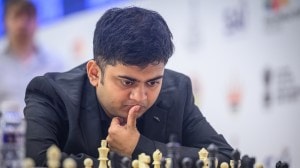Govt doublespeak on Thackeray angers Supreme Court
NEW DELHI, JULY 21: The Supreme Court today slammed the Vajpayee Cabinet for abandoning collective responsibility'' on the proposed pros...

NEW DELHI, JULY 21: The Supreme Court today slammed the Vajpayee Cabinet for “abandoning collective responsibility” on the proposed prosecution of Shiv Sena chief Bal Thackeray.
Without mentioning any names, a bench, headed by Chief Justice A S Anand, took objection to the opinions aired by Union Ministers that the Centre could issue directions under the Constitution to the Maharashtra Government for quashing the move to prosecute Thackeray. The Ministers include Ram Jethmalani, Arun Jaitley and Manohar Joshi.
The public statements of the ministers annoyed the court as they deviate sharply from an affidavit filed earlier by the Central Government on a public interest litigation (PIL) seeking action on the Srikrishna Commission inquiry ordered by the Maharashtra Government into the Mumbai riots of 1992-93.
The charges against Thackeray — in the case which the Maharashtra Government has decided to re-open — that he made inflammatory statements promoting enmity between communities is covered by the Srikrishna commission as well.
While the Ministers, over the past few days, have been making statements that the Centre can step in and stop the state government from arresting Thackeray, the Government’s affidavit filed in September 1999 said just the opposite. It asserted that “the Central Government is not the appropriate Government either to implement the findings (of the Commission) or to conduct prosecution and it cannot also direct the state Government…since the jurisdiction of the appropriate Government is exclusive under the law as well as in practice.”
The court rebuked the Government when the PIL came up for hearing today, for the first time since the Maharashtra Government gave its sanction earlier in the week for Thackeray’s prosecution under Section 153-A IPC.
“Is there something known as the collective responsibility of the Government? We have hardly come across any civilised Government behaving like this,” the court told Attorney General Soli Sorabjee. The judges said firmly that the Government could not say one thing to the court and an altogether different thing to the public.
Sorabjee sought to retrieve the situation by assuring the court that the Government still stood by the affidavit filed before it, that the Centre still believed that it had no say on the action to be taken on the Sri Krishna Commission report.
But the court nevertheless directed the Centre to file a fresh affidavit within six weeks to spell out its stand on the issue in clear terms. The Maharashtra Government was also asked to file an affidavit by the same date in view of its tardy action on the inquiry report.
“You appoint a high court judge and this is the way you treat his report,” the bench told the Maharashtra Government’s counsel, Ashok Desai. When a commission of inquiry holds certain person prima facie responsible for the riots, the logical corollary is to prosecute them, it observed.
Desai explained that the present state Government had already reversed the decision of its predecessor (the Shiv Sena-BJP Government) and referred the report to the Crime branch of the police for further action. He also assured the court that police would in no way be influenced by the previousGovernment’s rejection of most of the findings.
But the court clarified that the police should only investigate the cases recommended and not attempt any “reassessment” of the inquiry report. The PIL filed by the Action Committee for the Implementation of the Sri Krishna Commission Report seeks quashing of the action taken report (ATR) of the previous Maharashtra Government on the ground that it encouraged “communal forces and shielded those found guilty for spreading communal riots.”
The Shiv Sena-BJP Government had rejected the Sri Krishna report saying it was “anti-Hindu and biased.” The Srikrishna report had indicted, among others, Thackeray and Manohar Joshi.
Besides Justice Anand, the bench included Jusice R C Lahoti and Justice K G Balakrishnan.



- 01
- 02
- 03
- 04
- 05




























